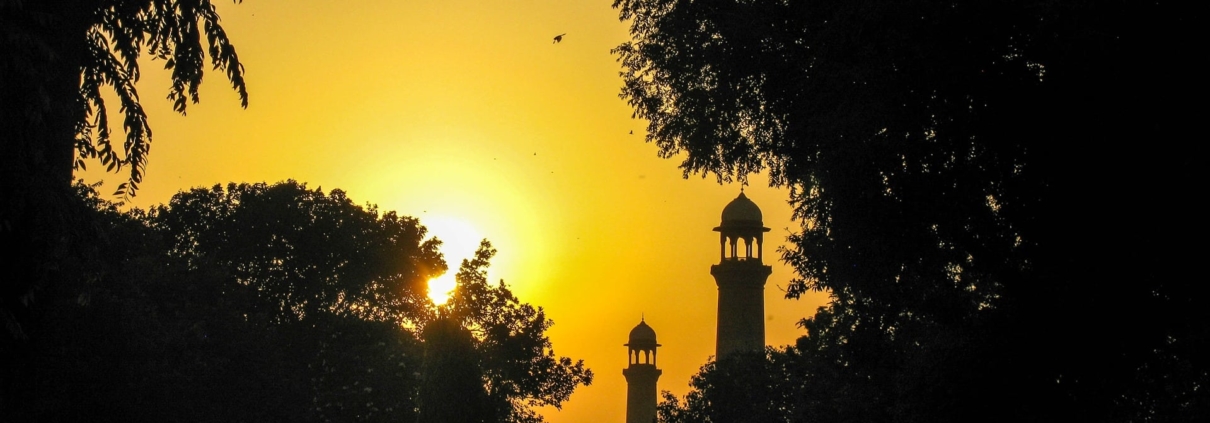How Should I Pray in a Country Where the Sun Doesn’t Set?
Hanafi Fiqh
Answered by Shaykh Abdul-Rahim Reasat
Question: Assalamu alaykum
How would I go about performing my five daily prayers in a country where the sun doesn’t set?
Certain countries in the summer have 21-22 hours of daylight and 2-3 hours for the sunset. The sun doesn’t set until around midnight and never fully sets since sunrise is around 2 AM. Therefore, there is never any full darkness as would be the indication for Maghrib or Isha.
Answer: As-salamu ‘alaykum wa rahmatullah wa barakatuh
I pray you are well.
This is an issue which has been discussed in detail by many classical and contemporary jurists. One possible solution that has been suggested is for one to pray according to maghirb, isha and fajr times in the nearest city in which these three prayer times can be seen to enter and exit. This means finding a city which lies on the latitude of 48 and using it’s sunset, isha and dawn times.(Fath al-Mulhim).
This is one possible method. It is also better to see what the Muslim community at large in the particular area is doing, and act accordingly. For more details, and reference to an excellent work which discusses this issue in detail please refer to this answer. And Allah knows best.
May Allah grant you with the best of both worlds.
Wassalam,
[Shaykh] Abdul-Rahim Reasat
Shaykh Abdul-Rahim Reasat began his studies in Arabic Grammar and Morphology in 2005. After graduating with a degree in English and History he moved to Damascus in 2007 to study and sit at the feet of some of the most erudite scholars of our time.
Over the following eighteen months he studied a traditional curriculum, studying with scholars such as Shaykh Adnan Darwish, Shaykh Abdurrahman Arjan, Shaykh Hussain Darwish and Shaykh Muhammad Darwish.
In late 2008 he moved to Amman, Jordan, where he continued his studies for the next six years, in Fiqh, Usul al-Fiqh, Theology, Hadith Methodology and Commentary, Shama’il, and Logic with teachers such as Dr Ashraf Muneeb, Dr Salah Abu’l-Hajj, Dr Hamza al-Bakri, Shaykh Ahmad Hasanat, Dr Mansur Abu Zina amongst others. He was also given two licences of mastery in the science of Qur’anic recital by Shakh Samir Jabr and Shaykh Yahya Qandil.
His true passion, however, arose in the presence of Shaykh Ali Hani, considered by many to be one of the foremost tafsir scholars of our time who provided him with the keys to the vast knowledge of the Quran. With Shaykh Ali, he was able to study an extensive curriculum of Qur’anic Sciences, Tafsir, Arabic Grammar, and Rhetoric.
When he finally left Jordan for the UK in 2014, Shaykh Ali gave him his distinct blessing and still recommends students in the UK to seek out Shaykh Abdul-Rahim for Quranic studies. Since his return he has trained as a therapist and has helped a number of people overcome emotional and psychosomatic issues. He is a keen promoter of emotional and mental health.
